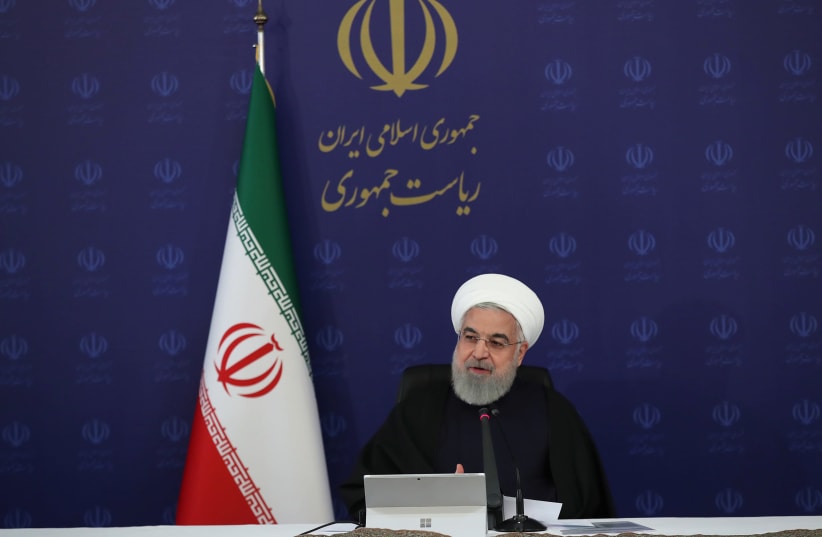Iran’s crackdown on the country’s persecuted Baha’i community continues unabated, with the incarceration of eight Baha’is for allegedly speaking to Western news organizations.
The US government media outlet Voice of America on Thursday first reported on the impending imprisonment of the Baha’is.
“According to the apparent court notice seen by VOA, the eight Baha’is were convicted of the national security charge in part for allegedly sharing information with Persian-language US and Britain-based news outlets deemed hostile by Iran’s Islamist rulers, including VOA, BBC Persian and Human Rights Activist News Agency, or HRANA,” Voice of America reporters Michael Lipin and Ramin Haghjoo wrote.
“The sentences make it clear that the Iranian judiciary aims to keep victims of human rights violations silent so that authorities may continue to act with impunity,” Skylar Thompson, HRANA’s US-based senior advocacy coordinator, told VOA. “HRANA is actively working to counter the government’s attempt to silence these victims.”
The imprisoned Baha’is are innocent, Diane Alai, the Baha’i International Community’s representative to the United Nations in Geneva, told VOA.
“The Iranian authorities have to use their imagination in order to cover up their persecution, which is, as the whole world knows, solely based on religious grounds,” she said.
The clerical regime detained the “Baha’is in April 2017, arresting seven of them in Bandar Abbas and on nearby Qeshm Island, and the other, Adib Haghpajooh, in the south-central city of Shiraz,” VOA reported.
The regime later released the Baha’is on bail.
The Baha’is “also were convicted for providing educational programs for the youth of their community, including establishing a kindergarten and holding music classes and seminars for teenagers,” according to the document obtained by VOA.
VOA said it “cannot independently verify the authenticity of the document as it is barred from reporting inside Iran.”
The document said an appeals court confirmed two-year sentences for Omid Afaghi, Mehrallah Afshar, Farhad Ameri, Adib Haghpajooh, Mahnaz Jannesar and Arash Rasekhi, and one-year sentences were imposed on Nasim Ghanavatian and Maral Rasti, VOA reported.
The Hormozgan Appeals Court is also believed to have banned the Baha’is from “attending Baha’i banquets and other gatherings, and [instituted] a requirement to learn about Islam by attending five counseling sessions at the Sajjadieh Cultural Institute of Islamic Thought in Bandar Abbas,” VOA reported.
The Biden administration has not criticized Iran’s regime for its persecution of Baha’is.
Separately, the Iranian regime is believed to be behind a second desecration of the grave of executed champion wrestler Navid Afkari. The Islamic Republic authorities destroyed the grave, The Jerusalem Post reported in December.
Iranian dissident journalist and women’s-rights campaigner Masih Alinejad on Friday showed a picture of Afkari’s desecrated grave on Twitter.
